The Future of AI in Consulting: A Conversation with Perceptis AI’s CTO
- Tharun Poduru
- Feb 21
- 7 min read
Updated: Jul 2
I recently had the opportunity to sit down with Yersultan Sapar, Co-Founder and CTO of Perceptis AI, to discuss his journey from Apple engineer to startup founder, his thoughts on AI’s role in business development, and what it takes to scale an early-stage company.
Our discussion was packed with insights into how AI can transform consulting workflows, why human oversight is still necessary today, and how founders must balance speed with quality when scaling a company. In this post, I’ll break down my key takeaways from our conversation and why they matter.
From Apple to Startup: Why He Took the Leap
Before co-founding Perceptis AI, Yersultan worked as an engineer at Apple, where he contributed to the Vehicle Motion Cues project, a system designed to reduce motion sickness in vehicles using subtle visual cues. It was a well-structured environment with clear objectives, but once the project was completed, he faced a critical career decision:
Stay at Apple and take on a new project.
Take a calculated risk and build something from the ground up.
He chose the startup path, partnering with his co-founder, whom he met while studying at UC Berkeley and had known for over six years. The decision wasn’t just about entrepreneurial ambition; it was also about having the freedom to move fast and innovate.
At Apple, working on AI was highly structured, with clear constraints on experimentation. Yersultan wanted the ability to iterate quickly, take risks, and push the boundaries of AI-driven automation—something that startups allow but large corporations often don’t.
Ultimately, trust, timing, and the desire to build something impactful led him to co-found Perceptis AI.
For anyone considering a career transition, Yersultan’s journey highlights the importance of:
Strategic timing: knowing when to move on.
Strong professional relationships: your next opportunity may come from someone you’ve worked with before.
Taking calculated risks: the decision to leave a stable job should be weighed against long-term opportunities.

What Perceptis AI Does: The Future of AI in Consulting
Perceptis AI was built to solve a specific problem in the consulting and business development space—the inefficiencies in proposal writing, lead generation, and follow-ups.
Many consulting firms spend hours or even days researching prospects, crafting proposals, and chasing leads. This process is time-consuming, repetitive, and prone to delays. Perceptis AI automates and augments these workflows, allowing firms to send more proposals, improve conversion rates, and ultimately drive revenue growth.
Here’s how it works:
Proposal Generation – Perceptis AI automates the creation of high-quality, customized proposals within 24 hours, ensuring consulting firms can respond quickly to new opportunities.
Lead Generation – Instead of waiting for leads, the platform monitors industry trends and alerts users when new business opportunities arise.
Intelligent Follow-Ups – Perceptis ensures that proposals don’t disappear into a “black hole” by tracking engagement and suggesting the best times to follow up.
By reducing the manual effort involved in business development, Perceptis AI enables firms to scale their operations without expanding their teams.
AI-driven automation is changing the way businesses operate, but Perceptis AI is not about replacing consultants—it’s about making them more efficient. The company’s approach ensures that firms spend less time on tedious tasks and more time on high-value work like strategy and client relationships.
The best AI solutions don’t just automate—they augment human expertise. Perceptis AI serves as an example of how AI can streamline processes without eliminating the need for skilled professionals.
Why Perceptis AI Takes 24 Hours to Generate a Proposal
One of the most interesting aspects of Perceptis AI is that while its AI can generate proposals in under an hour, the company still takes 24 hours to deliver them. This delay isn’t due to technical limitations but a deliberate choice to ensure quality and accuracy.
Yersultan explained that every proposal undergoes human review before being sent to a client. While the AI is powerful, it’s not yet perfect—and the team at Perceptis AI understands that. Instead of assuming AI can fully replace human expertise, they leverage human reviewers to refine the output, catch errors, and ensure each proposal meets the highest standards.
However, this is just the current state of the system. Over time, Perceptis AI is learning from human feedback and continuously retraining its models. The goal is to gradually reduce the reliance on human review so that, eventually, AI-generated proposals will be accurate enough to be sent out without human intervention.
Yersultan acknowledges that one day, AI will likely reach a point where human review is no longer necessary. But today, the company recognizes that balancing automation with quality control is critical.
This approach highlights an important truth about AI: the best AI-powered solutions don’t eliminate human oversight immediately—they evolve toward full autonomy through iterative learning. Perceptis AI’s workflow reflects this reality, ensuring accuracy today while preparing for a more efficient, AI-driven future.
Building a Startup vs. Working in Big Tech
Having worked at both Apple and a startup, Yersultan has experienced two very different work environments—one with structured processes and vast resources, and the other with rapid iteration and constant uncertainty.
At Apple, his role was well-defined. He worked on a specific project with a clear scope, surrounded by specialized teams handling different aspects of development. Decisions were made deliberately, ensuring quality and alignment with Apple's long-term strategy.
In contrast, life at Perceptis AI is fast-moving and unpredictable. As a co-founder and CTO, Yersultan isn’t just focused on engineering—he’s involved in product development, hiring, sales conversations, and everything in between. There’s no dedicated team to handle each challenge; instead, everyone wears multiple hats to push the company forward.
One of the biggest challenges in a startup, he explained, is balancing speed and quality. While rapid iteration is essential, rushing to build features without careful thought can lead to technical debt and poor user experience. This is why he places such a strong emphasis on hiring the right people—people who take ownership, think long-term, and align with the company’s mission.
The Trade-Off: Stability vs. Agility
Working at Big Tech offers stability, well-defined roles, and access to cutting-edge resources, while a startup provides agility, broader responsibilities, and the ability to shape a product from the ground up. Neither is inherently better—it depends on what a person values at a given point in their career.
Some thrive in structured environments where decisions are carefully weighed, while others prefer the challenge of uncertainty, fast pivots, and building something from scratch. Yersultan’s experience highlights the reality that while startups offer freedom and impact, they also require adaptability, resourcefulness, and a willingness to navigate ambiguity.
For those considering the leap from corporate to startup life, the key question isn’t just about career trajectory—it’s about personality fit. Do you thrive in ambiguity and fast-paced environments, or do you prefer stability and well-defined objectives?
Lessons in Leadership & Product Thinking
One of the most valuable takeaways from my conversation with Yersultan was his approach to leadership and product thinking. Even as a technical leader, he believes that understanding the business impact of engineering decisions is just as important as writing great code.
At Perceptis AI, he ensures that engineers don’t just focus on “building things” but also understand why they are building them. Rather than simply assigning tasks, he takes the time to explain:
Who the customer is.
What problem they are trying to solve.
How this solution fits into the company’s broader strategy.
This mindset—where engineers are empowered to think like product managers—creates a culture of ownership and accountability, leading to better decision-making and more impactful products.
Beyond engineering, Yersultan also highlighted the importance of hiring the right people. A startup’s success isn’t just about having the best technology—it’s about building a team that is aligned with the mission and willing to take ownership. Hiring someone who is technically skilled but lacks adaptability and ownership can slow down a company’s growth rather than accelerate it.
His leadership approach underscores an important truth: great leaders don’t just manage teams—they align people with a shared vision and ensure everyone understands the bigger picture. Whether in engineering, product management, or leadership, the ability to connect daily tasks to real business impact is what separates good teams from great ones.
Conclusion: What I Took Away from This Conversation
My conversation with Yersultan Sapar was not just about learning how Perceptis AI is reshaping business development—it was a deep dive into career transitions, leadership, and the evolving role of AI in the workplace.
Three major takeaways stood out to me:
Strategic career transitions are about timing and relationships. Yersultan’s decision to leave Apple wasn’t impulsive—it was based on the right opportunity, the right co-founder, and the right time.
AI is an enabler, not a replacement for human expertise—at least for now. Perceptis AI still relies on human oversight, but its goal is to continuously improve until the need for manual review disappears.
Great leaders create alignment between engineering, product, and business strategy. Whether in a startup or a large company, ensuring that teams understand the "why" behind their work leads to better decision-making and stronger products.
This conversation reinforced the importance of understanding both the technical and business sides of a product—a mindset that I will take with me as I continue my journey into product management. It also highlighted how AI is rapidly transforming industries, not by replacing people but by enhancing how work gets done.
If you're interested in how AI is transforming business development, check out Perceptis AI. If you’re someone who enjoys discussions around AI, product management, or the future of technology, let’s connect - I'd love to hear your thoughts!


